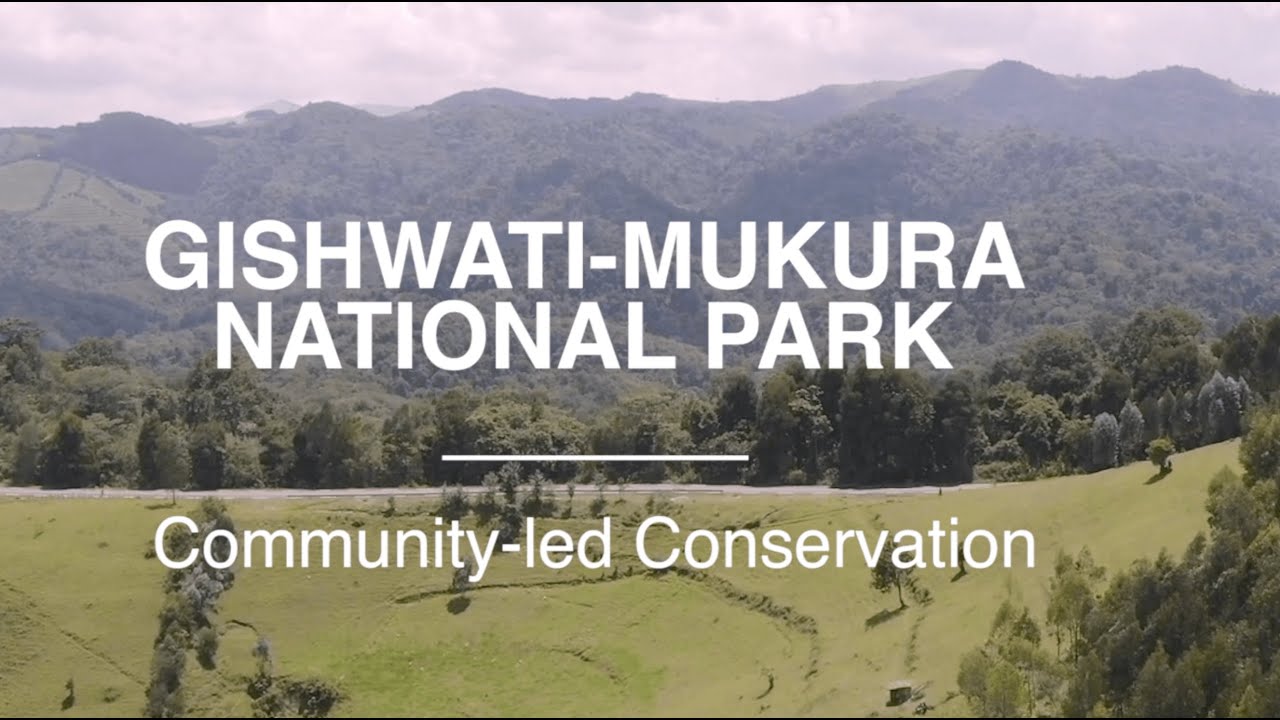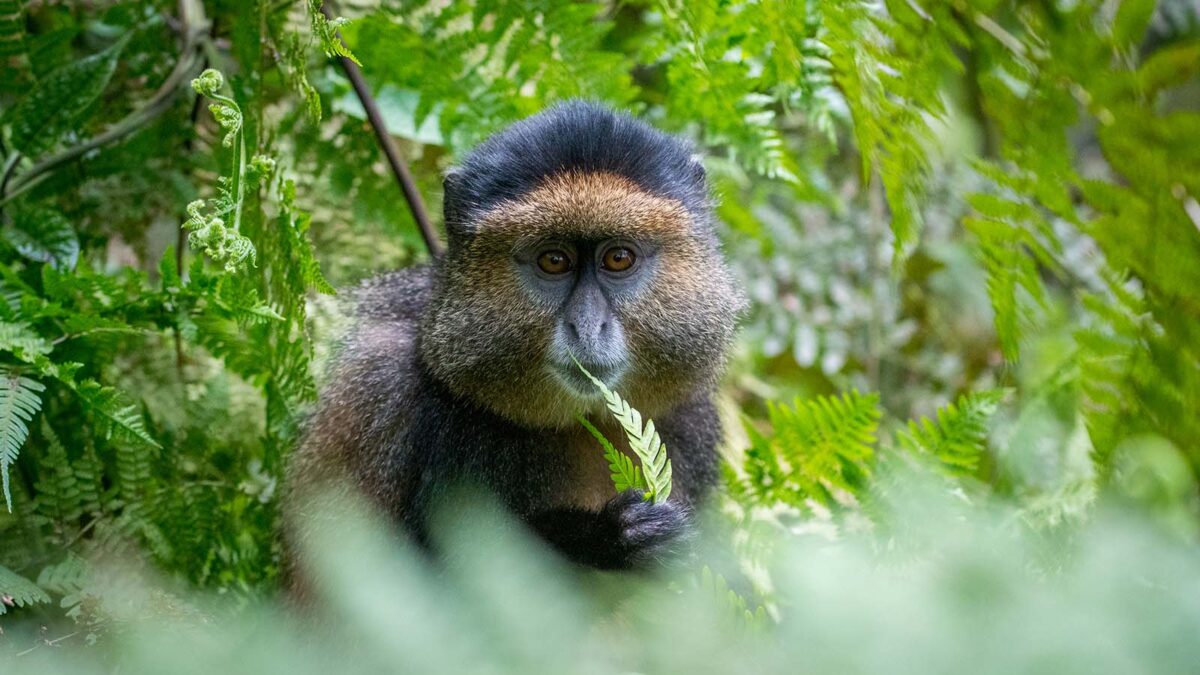Gishwati-Mukura National Park: Rwanda’s Hidden Gem of Biodiversity and Adventure
Gishwati-Mukura National Park, located in the western region of Rwanda, is a burgeoning gem of biodiversity and natural beauty. Established in 2015, this park spans over 34,000 hectares and serves as a crucial conservation area for Rwanda’s flora and fauna. The park is the result of a significant restoration project aimed at reviving and preserving the unique ecosystems of Gishwati and Mukura forests, which were severely degraded over decades. Today, Gishwati-Mukura stands as a testament to successful conservation efforts and offers visitors a rich array of wildlife and adventure experiences. Its lush rainforests, diverse wildlife, and scenic landscapes make it a compelling destination for nature enthusiasts and adventure seekers.
Primate Encounters: Discovering the Park’s Primate Species
Gishwati-Mukura National Park is home to a variety of primate species, including the endangered chimpanzees and the rare golden monkeys. Primate trekking in the park provides an extraordinary opportunity to observe these fascinating creatures in their natural habitat. Chimpanzees, known for their complex social structures and intelligence, can be tracked through the forest, offering insights into their behavior and interactions. Similarly, the golden monkeys, with their striking orange fur and playful demeanor, are a highlight for wildlife enthusiasts. The park’s ongoing conservation efforts have helped to stabilize and increase primate populations, making Gishwati-Mukura a crucial site for primate research and tourism.
Scenic Hiking Trails: Exploring the Forested Terrain
Gishwati-Mukura National Park boasts a network of scenic hiking trails that wind through its verdant forests and rolling hills. These trails offer a range of hiking experiences, from leisurely walks to more challenging treks. The Nyungwe Trail, one of the park’s prominent routes, takes hikers through the heart of the forest, showcasing its rich biodiversity and stunning landscapes. Along the trails, hikers can enjoy breathtaking views, encounter diverse plant species, and observe wildlife. The park’s commitment to ecological restoration ensures that the trails provide a sustainable and immersive hiking experience, allowing visitors to connect with the natural beauty of Gishwati-Mukura.
Birdwatching Paradise: A Haven for Ornithologists
Birdwatching in Gishwati-Mukura National Park is a rewarding experience, with over 60 bird species recorded within its boundaries. The park’s diverse habitats, including rainforests, bamboo forests, and wetlands, provide ideal conditions for a wide range of avian species. Notable birds include the Albertine Rift endemics such as the Rwenzori turaco and the Grauer’s rush warbler. Birdwatchers can explore various habitats to spot and identify different bird species, making Gishwati-Mukura a haven for ornithologists. The park’s birdwatching opportunities are complemented by its scenic beauty, offering a comprehensive and enjoyable birding experience.
Conservation Efforts: Revitalizing the Forest Ecosystems
The restoration of Gishwati-Mukura National Park is a significant conservation success story. The park’s establishment involved extensive efforts to rehabilitate and protect the forest ecosystems that were previously threatened by deforestation and human activity. Reforestation projects, anti-poaching measures, and community engagement have played crucial roles in the park’s recovery. These conservation efforts have not only restored critical habitats but also contributed to the preservation of the park’s rich biodiversity. The park serves as a model for conservation in Rwanda and highlights the importance of sustained efforts in protecting and revitalizing natural ecosystems.
Cultural and Community Engagement: Connecting with Local Traditions
Gishwati-Mukura National Park is also committed to engaging with local communities and promoting cultural heritage. The park’s surrounding areas are home to several local communities with rich cultural traditions and practices. Visitors can participate in cultural tours that offer insights into the daily lives and customs of these communities. Traditional dances, crafts, and local cuisine provide a deeper understanding of Rwandan culture and enhance the overall visitor experience. By involving local communities in tourism and conservation efforts, Gishwati-Mukura supports sustainable development and fosters positive relationships between visitors and residents.
Comparing Gishwati-Mukura with Other Iconic African National Parks
Serengeti National Park, Tanzania: The Great Migration Spectacle
While Gishwati-Mukura offers a tranquil and intimate experience with nature, Serengeti National Park in Tanzania is renowned for its grand spectacle of the Great Migration. The Serengeti’s vast plains become the stage for the migration of millions of wildebeest, zebras, and gazelles, creating one of nature’s most dramatic events. The park’s open savannahs provide expansive game viewing opportunities, with the chance to witness predator-prey interactions and experience the sheer scale of the migration. This contrasts with Gishwati-Mukura’s forested terrain and focus on primate and birdwatching experiences, offering a different but equally captivating safari experience.
Maasai Mara National Reserve, Kenya: Wildlife and Cultural Riches
The Maasai Mara National Reserve, adjacent to the Serengeti, offers a combination of exceptional wildlife viewing and cultural experiences. Known for its rich wildlife, including the Big Five and the Great Migration, the Maasai Mara also provides opportunities to engage with the Maasai people and learn about their traditions. This blend of wildlife and culture complements Gishwati-Mukura’s focus on primates and forest ecosystems. The Maasai Mara’s diverse experiences highlight the contrasts between open savannahs and lush forests, offering a broader range of safari activities and cultural interactions.
Okavango Delta, Botswana: Water-Based Safari Adventures
The Okavango Delta in Botswana presents a unique water-based safari experience, contrasting with Gishwati-Mukura’s forest and terrestrial adventures. The delta’s network of waterways and islands supports a rich array of wildlife, including elephants, hippos, and various bird species. Mokoro (traditional canoe) safaris provide a serene and intimate way to explore the delta’s wetlands and observe wildlife from a different perspective. This water-based adventure contrasts with Gishwati-Mukura’s hiking and primate trekking, offering a distinctive safari experience centered around the delta’s aquatic environments.
Kruger National Park, South Africa: A Comprehensive Safari Experience
Kruger National Park, one of Africa’s largest game reserves, provides a comprehensive safari experience with its diverse habitats and extensive wildlife viewing opportunities. The park’s extensive road network allows for self-drive safaris, offering flexibility in exploring its varied landscapes. Kruger’s focus on the Big Five and diverse wildlife contrasts with Gishwati-Mukura’s emphasis on primates and birdwatching. The park’s comprehensive safari experience highlights the differences in safari styles, from the expansive savannahs of Kruger to the lush forests of Gishwati-Mukura.
Future Prospects and Development: Ensuring Long-Term Sustainability
The future of Gishwati-Mukura National Park looks promising as ongoing conservation efforts and sustainable tourism practices continue to shape its development. The park’s commitment to ecological restoration, community involvement, and responsible tourism will play a crucial role in its long-term sustainability. Future plans include expanding conservation programs, enhancing visitor experiences, and strengthening partnerships with local communities. By focusing on these areas, Gishwati-Mukura aims to maintain its status as a key destination for nature enthusiasts and contribute to the broader conservation goals in Rwanda.
Conclusion: A Jewel of Rwanda’s Natural Heritage
Gishwati-Mukura National Park stands out as a jewel of Rwanda’s natural heritage, offering a unique blend of biodiversity, adventure, and cultural experiences. From primate trekking and scenic hiking trails to birdwatching and community engagement, the park provides a comprehensive and enriching experience for visitors. Its successful conservation efforts and commitment to sustainable tourism highlight its role as a vital part of Rwanda’s conservation landscape. Comparisons with other iconic African national parks showcase Gishwati-Mukura’s distinctive features and underscore its value as a destination for nature lovers and adventure seekers. For those seeking an authentic and immersive connection with Rwanda’s natural beauty, Gishwati-Mukura National Park offers a captivating journey into one of Africa’s hidden gems.



